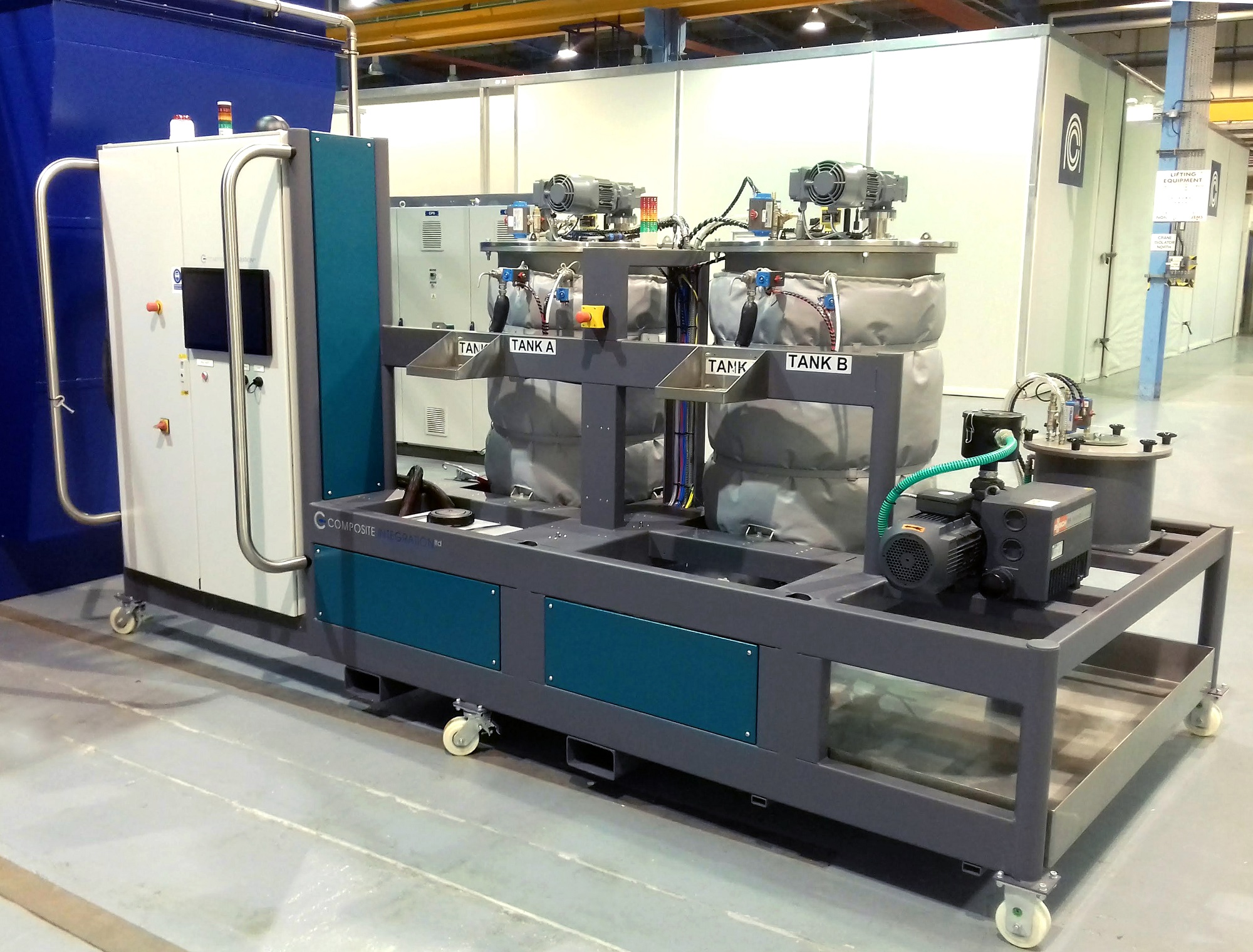
The National Composites Centre (NCC) in the UK and Composite Integration Ltd have completed a year-long project to design and deliver large scale resin infusion (LSRI) technology suitable for research and development in the aerospace and wind industry markets where components can range from 17 m up to 120 m in length.
The £36.7 million covers digital manufacturing technologies being installed at the NCC to support composites innovation, manufacturing and research development programs across a range of sectors.
The liquid composite molding (LCM) process, one of the core competencies of the NCC, is used to produce composite parts with better integrity, without the need for an autoclave. Using LCM fibers can be first assembled ‘dry’ into a mold, resin is then pumped into the fibers and drawn through under vacuum prior to being cured in an oven.
The first application of the technology will be to enable infusion of complete wing components, the NCC says. The new process is now available to companies across the UK, can inject high resin volumes into a variety of preforms, primarily, but not limited to, using a vacuum bagged set up.
The machine can also process both single or two-part resin systems and can be used with a 20 m oven to enable cure of those resins.
Larger batches
‘Processing aerospace grade epoxy resin systems at elevated temperatures brings with it a number of challenges,’ said Simon Vincent, design and engineering manager at Composite Integration. ‘Although equipment exists on the market for processing smaller quantities of these resin systems, as the scale of aerospace parts being manufactured using liquid resin infusion has increased, there was an evident need to develop machinery capable of processing up to 400 kg of high temperature epoxy resin. This is the first machine of its kind that can process this type of resin in batches larger than 50 kg.’
This story uses material from the NCC, with editorial changes made by Materials Today. The views expressed in this article do not necessarily represent those of Elsevier.





